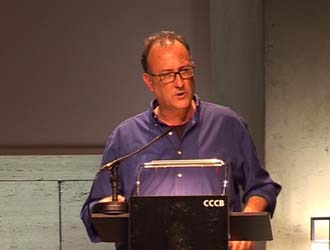The Catalan philosopher believes that the city is everything today: the space for confrontation of conflicting interests over what is held in common. He believes this dual dimension makes it possible to detect who is permitted to be an active agent of society and who is not and, hence, who is allowed to be visible.
Shared Spaces recorded this conversation with the philosopher Xavier Antich in 2013 when he visited the Centre of Contemporary Culture of Barcelona (CCCB) to discuss “The City” with the architect and poet Joan Margarit as part of the “In Common” lecture series. Antich believes that, “The nature of the democratic system depends on what happens in cities”. He says that today’s city is “everything”. It has “interests segregating and freeing spaces, territories, devices and strategies from the public domain and joint control” combined with “a certain countervailing power which aims precisely to make this shared space expand, subject to the public will, and public decisions”.
This dual dimension of representation, which is both political and aesthetic, “makes it possible to detect who is visible and who is not visible, who is an active subject and who is condemned to being a mere passive subject in all this management”. He offers as an example the question of whether or not a mosque should be constructed in the middle of a city, “a decision that not only affects the distribution of physical space but also democratic quality, and the quality of life in this physical space”.
As for his favourite public space, Antich cites places that are more accidental than anything else, for example vacant lots where buildings have been demolished which, although they may be avoided in formal terms, are immediately endowed with a variety of uses by urban life itself. The public spaces he likes best, then, are “the most vital, most dynamic spaces, which change practically every week because of the use citizens make of them”. These are spaces where the Greek sense of the city as a polis (a political space, one of transformation) prevails over the Latin notion of urbs (physical space), the spaces in which “the polis gives rise to new uses of the city beyond what the definition of physical spaces already permits”.




